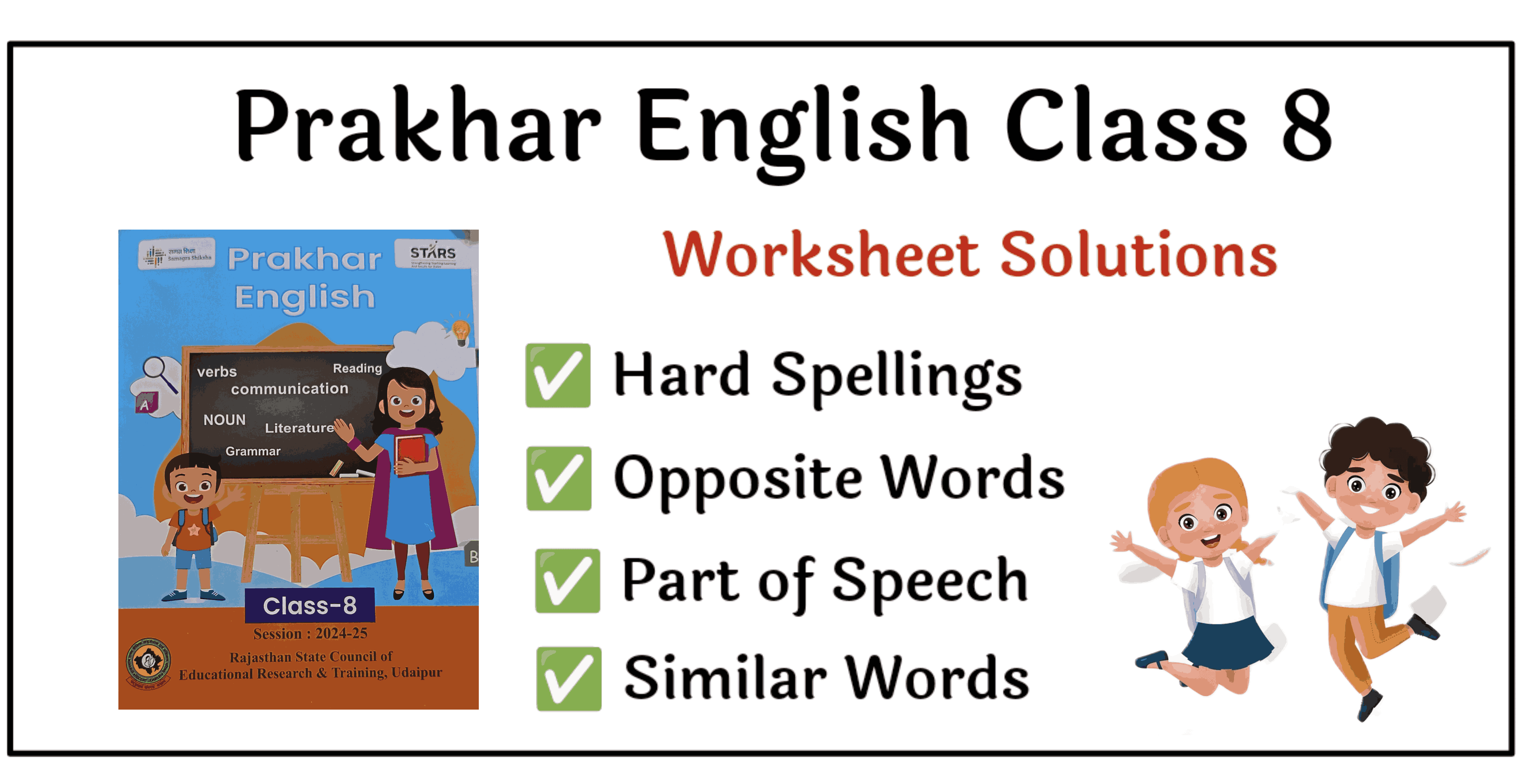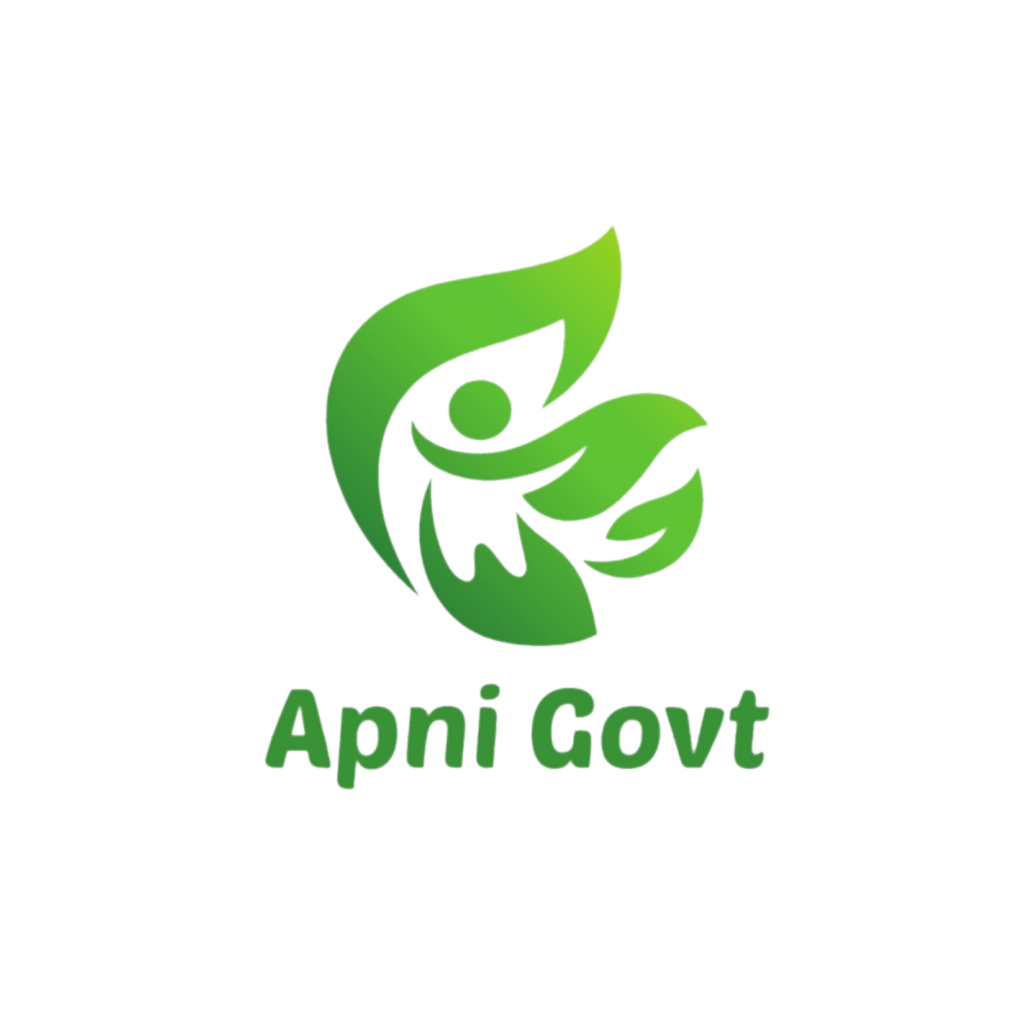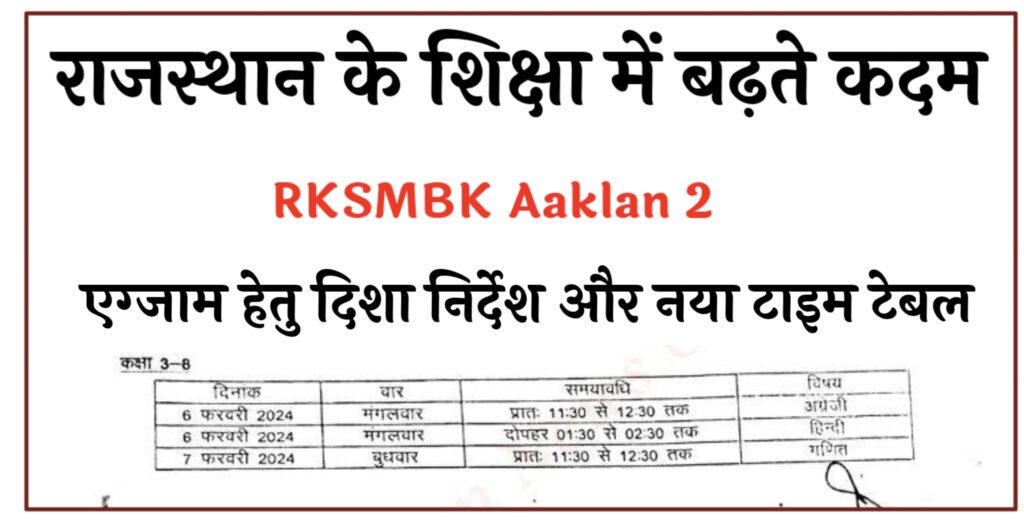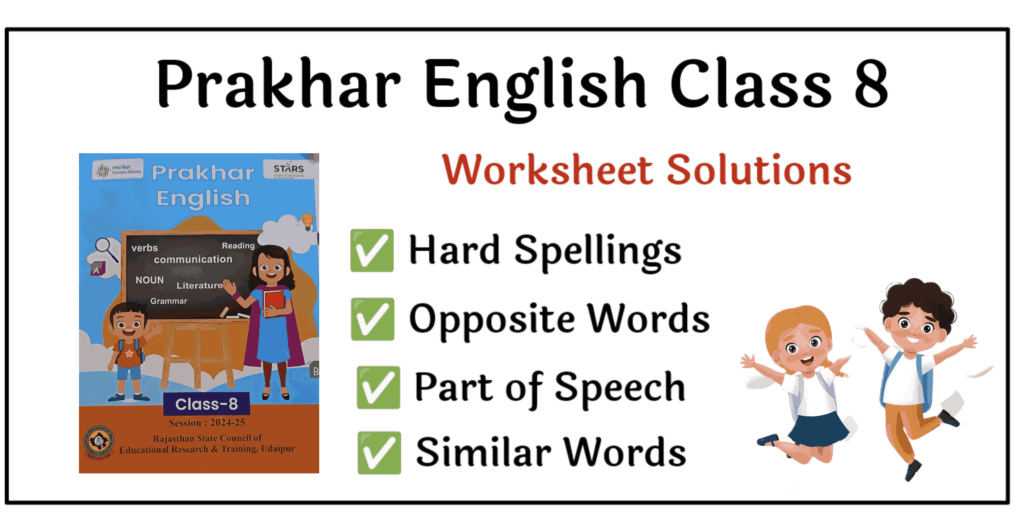Class 8 Worksheet 90 Question Answers
RSCERT Rajasthan State Council of Educational Research & Training, Udaipur द्वारा विद्यार्थियों के अधिगम स्तर को बढ़ाने के लिए एक बेहतरीन प्रयास हेतु वर्कबुक जारी की गयी है I हमने आपकी Learning में और सुधार करने और एक इस कार्यपत्रक (Class 8 Workbook) Worksheet 90 में Hard Spellings, Part of Speech, Grammar & Vocabulary , Gender,Opposite, Similar Words, One words etc यहाँ क्लियर किये है

Worksheet 90 Solution English
Competency: Reads text with comprehension-Infers meaning from the text.
Read the given paragraph and answer the following questions:
Udaipur is popularly known as the ‘City of lakes’. It is situated in south of Rajasthan. The city has interconnected lake system which helps in regeneration of groundwater and regulates the climatic conditions. It was Maharana Udai Singh who founded the city of Udaipur. The city has many big and small lakes like the Pichhola lake, Fateh Sagar and Swaroop Sagar. Udaipur also has some famous hotels like the ‘Lake Palace’. All this makes Udaipur a tourist attraction throughout the year.
Here are the answers to the worksheet:
-
What is Udaipur known as?
- Udaipur is known as the ‘City of Lakes’.
-
Who founded the city?
- Maharana Udai Singh founded the city of Udaipur.
-
Write names of lakes that are in Udaipur.
- The lakes in Udaipur are Pichhola Lake, Fateh Sagar, and Swaroop Sagar.
-
How do you think Udaipur contributes to the environment?
- Udaipur contributes to the environment by having an interconnected lake system, which helps in the regeneration of groundwater and regulates the climatic conditions. This ensures a sustainable water supply and maintains the city’s natural balance.
Worksheet 90 Hard Spellings
यहां वर्कशीट Worksheet -90 शब्दों के हिंदी उच्चारण और उनके अर्थ दिए गए हैं:
यहां दिए गए शब्दों के हिंदी उच्चारण और उनके अर्थ निम्नलिखित हैं:
Udaipur (उदयपुर) – यह राजस्थान का एक प्रमुख शहर है, जो ‘झीलों का शहर’ के नाम से प्रसिद्ध है।
City of Lakes (झीलों का शहर) – यह एक उपनाम है जो उदयपुर को दिया गया है क्योंकि इस शहर में कई प्रसिद्ध झीलें हैं।
Maharana Udai Singh (महाराणा उदय सिंह) – उदयपुर के संस्थापक महाराणा उदय सिंह थे।
Interconnected (परस्पर जुड़े हुए) – जब कोई चीज़ एक-दूसरे से जुड़ी हो।
Lake System (झील प्रणाली) – झीलों का एक नेटवर्क या समूह।
Regeneration (पुनर्जीवित होना) – किसी चीज़ का फिर से बनना या नया होना।
Groundwater (भूतल जल) – वह पानी जो जमीन के नीचे होता है और जो कुओं, बावलियों आदि के माध्यम से प्राप्त किया जाता है।
Regulates (नियंत्रित करता है) – किसी चीज़ को ठीक से चलाने या संचालित करने की क्रिया।
Climatic Conditions (जलवायु स्थितियाँ) – वातावरण की स्थिति जैसे तापमान, आर्द्रता आदि।
Tourist Attraction (पर्यटन आकर्षण) – वह जगहें जो पर्यटकों को आकर्षित करती हैं।
Famous (प्रसिद्ध) – जिसे लोग जानते हैं और जो प्रसिद्ध हो।
Hotel (होटल) – एक ऐसी जगह जहां लोग ठहरने के लिए जाते हैं।
Lake Palace (लेक पैलेस) – यह एक प्रसिद्ध महल है जो उदयपुर की झीलों के बीच स्थित है।
Opposite words, Gender, WH words
1. Opposite Words (विपरीत शब्द):
- Popular (लोकप्रिय) – Unpopular (अलोकप्रिय)
- Big (बड़ा) – Small (छोटा)
- Many (बहुत) – Few (कुछ)
- Famous (प्रसिद्ध) – Unknown (अज्ञात)
- Helps (मदद करना) – Hinders (रोकना)
- Regeneration (पुनर्जीवित होना) – Destruction (विनाश)
- Groundwater (भूतल जल) – Surface water (सतही जल)
2. Gender Forms (लिंग रूप):
- Founder (उद्गाता) (Male) – Foundress (उद्गात्री) (Female)
- Maharana (महाराणा) (Male) – Maharani (महारानी) (Female)
- Hotel (होटल) (Neutral) – No gender change, but can be referred to as Hotelier (होटल संचालक) for a male or female business owner.
3. WH Words (प्रश्नवाचक शब्द):
- What (क्या)
- Who (कौन)
- Where (कहाँ)
- When (कब)
- Why (क्यों)
- How (कैसे)
- Which (कौन सा/कौन सी)
- Whose (किसका/किसकी)
4. Tenses (काल):
-
Present Tense (वर्तमान काल):
- Simple Present: “I read” (मैं पढ़ता हूँ)
- Present Continuous: “I am reading” (मैं पढ़ रहा हूँ)
- Present Perfect: “I have read” (मैंने पढ़ लिया है)
- Present Perfect Continuous: “I have been reading” (मैं पढ़ रहा हूँ)
-
Past Tense (भूतकाल):
- Simple Past: “I read” (मैंने पढ़ा)
- Past Continuous: “I was reading” (मैं पढ़ रहा था)
- Past Perfect: “I had read” (मैंने पढ़ लिया था)
- Past Perfect Continuous: “I had been reading” (मैं पढ़ रहा था)
-
Future Tense (भविष्य काल):
- Simple Future: “I will read” (मैं पढ़ूँगा)
- Future Continuous: “I will be reading” (मैं पढ़ रहा होऊँगा)
- Future Perfect: “I will have read” (मैंने पढ़ लिया होगा)
- Future Perfect Continuous: “I will have been reading” (मैं पढ़ रहा होऊँगा)


